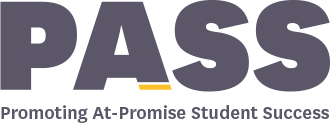PROACTIVE ADVISING
Articles
The Impact of a College Transition Program Proactive Advising Intervention on Self-Efficacy.
This study proposes an empirically grounded, non-deficit oriented, college transition program proactive advising model, called “mid-semester grade checks,” to promote academic self-efficacy among first-generation, low-income, and underrepresented minoritized students. The grade checks model was developed based on data comprised of longitudinal interviews with 70 participants in a comprehensive college transition program. Mid-semester grade checks promote academic self-efficacy through: (a) reflection and self-assessment, (b) emotional and interpersonal support, and (c) proactive planning and instrumental guidance.
Validating Approaches to Proactive Advising: A Promising Practice to Promote College Success Among Low-Income, First-Generation, and Racially-Minoritized Students in a Comprehensive College Transition Program.
Historically, higher education was designed for a narrow pool of privileged students. Despite national, state and institutional policies developed over time to improve access, higher education has only lately begun to address how its unexamined assumptions, practices and climate create barriers for poor and working class populations and lead to significant disparities in degree completion across social classes.The data shows that higher education substantially fails to provide poor and working class students with the necessary support to achieve the social mobility and success comparable to the attainments of their middle and upper class peers. This book presents a comprehensive range of strategies that provide the fundamental supports that poor and working-class students need to succeed while at the same time dismantling the inequitable barriers that make college difficult to navigate.
Briefs
Proactive Advising Practice Guide
The proactive advising process discussed in this guide provides guidance to academic advisors searching for practices and approaches that will increase at-promise students’ college success in ways that traditional advising may not. Proactive advising is an alternative approach to traditional advising that can proactively address many of the barriers that at-promise students face as they navigate college environments. In this guide, we offer a short overview of the PASS project, describe what proactive advising is—including when it occurs, who is responsible for proactive advising, and where it can be implemented—and finally present a model illustrating how to do proactive advising. We present scenarios to illustrate how to enact proactive advising practices based on the evidence-based model identified in our research. Throughout the guide, you will encounter reflection questions to facilitate making sense of how the information in this document can be used. Supplemental resources related to proactive advising are provided at the end of this guide along with action ideas for next steps.
Engaging at-Promise Students for Success through Innovative Practices
There has been a steady increase in enrollment of students whom we refer to as at-promise students1 (i.e., low-income students, many of whom are also first-generation college students and racially minoritized students) in higher education.2 Thus, there is a need for evidence-based practices to better serve this student population. As our ecology of validation brief3 describes, it matters more how educators support students than what types of interventions get created. However, we have identified several program components that not only reflect the use of validating approaches but also offer examples of structures and practices that support the success of at-promise students. Practices related to advanced career and major self-efficacy are described in a separate brief. In this brief, we focus on two effective program components: proactive advising as part of mid-term meetings and shared academic courses, including a writing course designed around autobiography.

